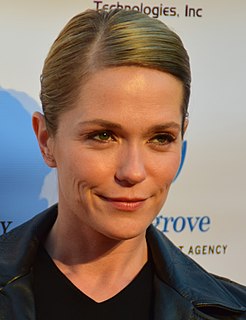A Quote by Henry James
...and the great advantage of being a literary woman, was that you could go everywhere and do everything.
Quote Topics
Related Quotes
And we could have all this,' she said. 'And we could have everything and every day we make it more impossible.' 'What did you say?' 'I said we could have everything.' 'We can have everything.' 'No, we can't.' 'We can have the whole world.' 'No, we can't.' 'We can go everywhere.' 'No, we can't. It isn't ours anymore.' 'It's ours.' 'No, it isn't. And once they take it away, you never get it back.
My literary criticism has become less specifically academic. I was really writing literary history in The New Poetic, but my general practice of writing literary criticism is pretty much what it always has been. And there has always been a strong connection between being a writer - I feel as though I know what it feels like inside and I can say I've experienced similar problems and solutions from the inside. And I think that's a great advantage as a critic, because you know what the writer is feeling.
Long ago, when I was a very young girl, I said that I wanted to go everywhere, see everything, taste everything. hear everything, touch everything, try everything before I died. There isn't anything you can name that a woman can do that I haven't done. I don't intend to stand by and be a spectator. I want to be right in there in the midst of it, right up to my nose - totally involved in the community, in the world, in the stream of history, in the human image.
In a way, America's the shadow of everything I do, everywhere I go, everything I carry, no matter if I travel to the ends of the earth. And I live frequently on the spine of the continent, near the Great Divide. Then there's the side of it being the real energy center for a truly post-postmodernist poetry mind, which is also archaic, because we can still be close to the land.
Everything goes, everything comes back; eternally rolls the wheel of being. Everything dies, everything blossoms again; eternally runs the year of being. Everything breaks, everything is joined anew; eternally the same House of Being is built. Everything parts, everything greets every other thing again; eternally the ring of being remains faithful to itself. In every Now, being begins; round every Here rolls the sphere There. The center is everywhere. Bent is the path of eternity.
The rule seemed to be that a great woman must either die unwed ... or find a still greater man to marry her. ... The great man, on the other hand, could marry where he liked, not being restricted to great women; indeed, it was often found sweet and commendable in him to choose a woman of no sort of greatness at all.
Being bodiless, God is nowhere, but as God He is everywhere. If there were a mountain, a place or any part of Creation where God was not, then He would be found to be in some way circumscribed. So He is everywhere and in everything. In what way is this so? Is He contained not by each part but by the whole? No, because then that would be a body. He embraces and encompasses everything, and is Himself everywhere and also above everything, worshipped by true worshippers in His Spirit and Truth.
There are characters in some short stories who exist as people, and there are other characters in different short stories who exist as purely literary constructs. You know, the young man in "Forbidden Brides of the Faceless Slaves in the Secret House of the Night of Dread Desire" - I probably got that right - is a literary construct, and enjoys being a literary construct. He has no life off stage, whereas the young men in "How to Talk to Girls at Parties" were as near to being real human beings as I could possibly get them.






































